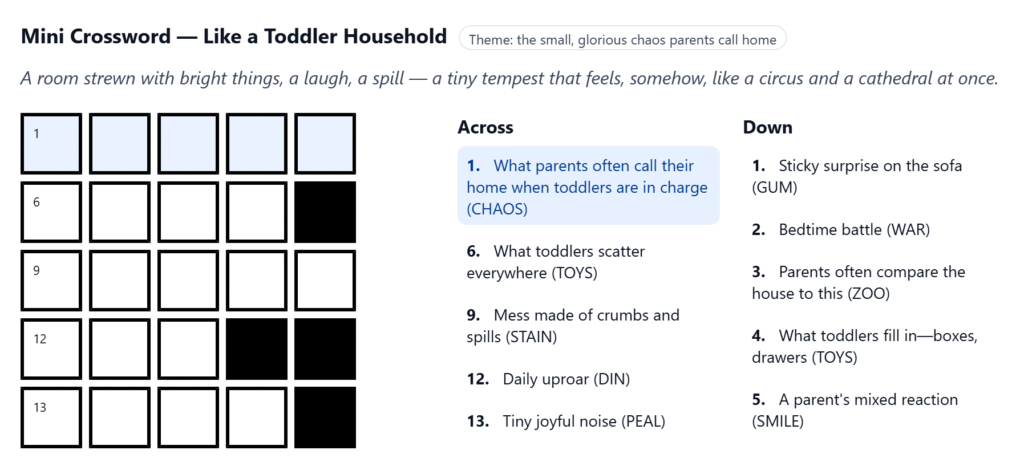By [Fari hub] | Published: September 1, 2025, 11:07 PM
There’s a quiet thrill in black-and-white squares. A secret dance between question and answer. The line memorizer NYT isn’t just a clue—it’s a whisper, a riddle, a story wrapped in letters. For crossword lovers, it’s the spark of recognition, the rush of triumph when ink (or pixel) fills an empty space.
What Is the Line Memorizer NYT?
The phrase “line memorizer” in the New York Times crossword refers to a clue that tests not just your vocabulary but your wit.
Origins in Crossword Culture
Crosswords thrive on misdirection. “Line memorizer” might hint at an actor learning lines, or a bard storing verses. The clue stretches imagination.
Why the Name Sparks Curiosity
It’s short, playful, and mysterious. Like a magician’s wand, it turns ordinary words into puzzles.
History of the NYT Crossword
No crossword is an island—it lives in a sea of tradition.
From 1942 to Digital Domination
The New York Times published its first crossword in 1942, a wartime distraction that became a cultural cornerstone.
The Puzzle That Shaped a Culture
From newspapers folded on subway rides to apps opened in quiet midnight hours, crosswords evolved but never lost their soul.
Why “Line Memorizer” Matters in NYT Crosswords
Definition of the Clue
In puzzle lingo, “line memorizer” often leads to “actor,” “poet,” or even “parrot.” It’s a test of lateral thinking.
Symbolism in Puzzle-Speak
It symbolizes the power of memory and performance, connecting literature, theater, and everyday life.
The Emotional Hook of Solving Crosswords
Why do we linger over grids? Because solving feels like catching lightning in a jar. That “aha!” moment is addictive.
Benefits of Playing the Line Memorizer NYT
Memory Enhancement
Every clue strengthens recall, flexing your mental muscles.
Cognitive Stimulation
Studies from Harvard Medical School show puzzles slow cognitive decline.
Stress Relief and Flow State
Like meditation, crosswords transport us into flow—a place where time bends.

Challenges of the Line Memorizer NYT
Tricky Clues
Not every “line memorizer” is obvious.
Double Meanings
It could be a parrot memorizing speech, or a student rehearsing line.
Difficulty Ratings
-
Monday: Gentle breeze 🌿
-
Saturday: Storm winds 🌪️
-
Sunday: Epic marathon 🏃
Tips to Master the Line Memorizer NYT
Start with Easy Clues
Mondays are training grounds; build momentum.
Use Contextual Hints
Across and down cross-check each other like friends finishing sentences.
Cross-Checking Across and Down
The grid is a web—tug one thread, and the rest vibrates.
Crossword Elements Explained
Across Clues
Marching steadily, they form the backbone.
Down Clues
Dropping like roots, they anchor meaning.
How “Line Memorizer” Fits
A bridge clue—it tests memory, art, and wit in one stroke.
Trivia and Fun Facts
-
The fastest solver of a NYT puzzle: 2 minutes, 40 seconds (Crossword Tournament Data).
-
Will Shortz, NYT’s crossword editor, is the only person with a degree in “Enigmatology.”
Cultural Impact of Crosswords
Newspapers to Apps
Once folded in print, now swiped on phones.
The Social Bond of Puzzling
Friends share grids, couples solve together, strangers bond over clues.
Economic Influence
Puzzle Subscriptions
The NYT crossword app attracts millions of paid users.
Crossword Competitions
Events like the American Crossword Puzzle Tournament generate buzz and community.
Future of Crossword Puzzles
AI-Powered Puzzles
Artificial intelligence already creates grids—but can it mimic human wit?
Interactive Digital Games
Soon, crosswords may blend with VR, where clues float like fireflies.
Why the Line Memorizer NYT Stands Out
Unique Wordplay
It demands creativity, not just vocabulary.
Connection to Language Lovers
It’s for poets at heart, dreamers with pens, solvers chasing sparks.
Conclusion: The Poetry of Puzzles
The line memorizer NYT is more than a clue—it’s a mirror of the human mind. To solve is to dance with words, to wrestle with meaning, to breathe poetry into black-and-white boxes. In every answer lies a tiny victory, a whispered triumph.
FAQs
1. What does “line memorizer NYT” mean?
It’s a crossword clue, often hinting at “actor,” “poet,” or “parrot,” depending on puzzle context.
2. How difficult is the line memorizer clue?
It varies—on Mondays it’s simple, but by Saturdays it may twist into layered meanings.
3. Are there strategies to solve NYT crosswords faster?
Yes—start with easy clues, scan the grid, and use cross-checking. See our guide on line memorizer NYT for detailed tips.
4. What makes NYT crosswords special?
Their reputation, clever editing by Will Shortz, and cultural resonance make them iconic.
5. Can crosswords really improve brain health?
Studies suggest they improve memory, focus, and may slow age-related decline (Harvard).
Author Bio:
Written by Fari Hub, crossword enthusiast, storyteller, and content creator. Dedicated to unraveling the poetry of puzzles. Visit my website.
